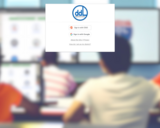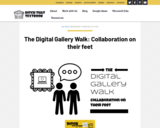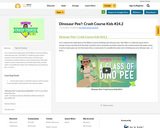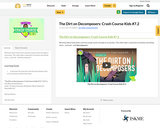
Hank takes us through the bowels of the human digestive system and explains why it's all about surface area.
- Subject:
- Biology
- Science
- Material Type:
- Activity/Lab
- Author:
- Crashcourse
- Date Added:
- 01/31/2019

Hank takes us through the bowels of the human digestive system and explains why it's all about surface area.

In this video we introduce the digestive system. We look at the two types of digestion: mechanical digestion and chemical digestion. We also look at the two subdivisions of the digestive system: the digestive tracts and the accessory structures.
Lesson 1 in our Digestive System series. This is part of our Anatomy and Physiology lecture series.
If this video helps you please be sure to LST -like subscribe and tell your friends. Your support helps us make more videos. For the complete series please visit http://mrfordsclass.net/
Other Free Videos in the Digestive System series:
-Introduction to the Digestive System (18:01): http://youtu.be/V71Ao98KePI
-The Mouth (18:02): http://youtu.be/-LWqhNaQjvk
-The Throat (18:03): http://youtu.be/guXIwvrUGM4

The mouth is our first stop in our digestive system. It is made of our cheeks, lips, tongue, and teeth. We take a look at the mouth as well as the components and how they help with the digestion of food.
Lesson 2 in our Digestive System series. This is part of our Anatomy and Physiology lecture series.
If this video helps you please be sure to LST -like subscribe and tell your friends. Your support helps us make more videos. For the complete series please visit http://mrfordsclass.net/
Other Free Videos in the Digestive System series:
-Introduction to the Digestive System (18:01): http://youtu.be/V71Ao98KePI
-The Mouth (18:02): http://youtu.be/-LWqhNaQjvk
-The Throat (18:03): http://youtu.be/guXIwvrUGM4

Moving down the digestive system we take a look at the throat. Specifically we examine the pharynx, and the esophagus. We also look at how we swallow, breaking it down into the two phases.
Lesson 3 in our Digestive System series. This is part of our Anatomy and Physiology lecture series.
If this video helps you please be sure to LST -like subscribe and tell your friends. Your support helps us make more videos. For the complete series please visit http://mrfordsclass.net/
Other Free Videos in the Digestive System series:
-Introduction to the Digestive System (18:01): http://youtu.be/V71Ao98KePI
-The Mouth (18:02): http://youtu.be/-LWqhNaQjvk
-The Throat (18:03): http://youtu.be/guXIwvrUGM4

The Digital Licence is an interactive resource that challenges young people to examine their interactions online and to think more critically. Referencing current trends and applications, the resource helps students and educators on their path toward informed digital citizenship.
It features about eight scenarios, tailored by age level, that cover topics including what constitutes copyright violation and how to stay safe online. Each student registers individually and then progresses through background material related to a given scenario, which might include a video or examining a given situation. When a student feels confident she has mastered a topic, she can take a "prove it" quiz that puts her knowledge to the test. A passing score is 80 percent or greater. Scores, answer resets and attempts are logged for educators, who can follow each student's progress in an admin toolbar. Educators can further specify which scenarios will be required to earn a DDL.
At Sun West you can log into this using your Sun West Office 365 credentials.

When students create digitally, that doesn't mean they can't interact face to face. The digital gallery walk blends digital and face-to-face learning.
Here's how it works:
1. Students create a digital artifact of their learning.
2. When everyone is finished, students display their work on their screens.
3. Students stand up and leave their devices on their desks.
4. They circulate the room, stopping at their peers’ desks (and devices) to check out their work.
(This could be applied to professional learning as well)
It's that simple. Check out this post for more details!

Digital Nation is a new, open source PBS project that explores what it means to be human in an entirely new world -- a digital world. It consists of this Web site as well as a major FRONTLINE documentary to be broadcast on Feb. 2, 2010. Our production team is posting rough cuts and raw footage on the web, and gathering input, feedback and stories from users as we go.

This book starts with a very brief development of signals and systems. It then develops the characteristics and the design of finite impulse response (FIR) digital filters. That is followed by developing the characteristics and the design of infinite impulse response (IIR) digital Filters.

Our first lesson in our FREE Introduction to Computers/ Business Computers Information Systems (BCIS) course.
This video will introduce new students to this series and what they can expect.
Our first lesson in our FREE Introduction to Computers/ Business Computers Information Systems (BCIS) course.
This video will introduce new students to this series and what they can expect.
Our first lesson in our FREE Introduction to Computers/ Business Computers Information Systems (BCIS) course.
This video will introduce new students to this series and what they can expect.

Les sujets de Français (lecture et écriture) et études sociales (communauté et environnement) seront étudiés dans cette leçon.
Il y aussi des documents à télécharger.

Through discussion and hands-on experimentation, students learn about the geological (ancient) carbon cycle. They investigate the role of dinosaurs in the carbon cycle and the eventual storage of carbon in the form of chalk. Students discover how the carbon cycle has been occurring for millions of years and is necessary for life on Earth. Finally, they may extend their knowledge to the concept of global warming and how engineers are working to understand the carbon cycle and reduce harmful CO2 emissions.

Let's continue the exploration of the Water Cycle by drinking some dinosaur pee. Yep! Well, it's a little less gross that it sounds. It turns out that all of the water on Earth is just constantly recycled in what we call a closed system. No water comes in and no water goes out. So that means that, at some point, it's possible the water we're drinking was once dinosaur pee... or tears...

This informational text introduces students to the dinosaurs found near the polar regions and discusses the adaptations that allowed these dinosaurs to survive in a dark and cold environment. The text is written at a kindergarten through grade one reading level. This is a PDF containing the informational text and a glossary.

This informational text introduces students to the dinosaurs found near the polar regions and discusses the adaptations that allowed these dinosaurs to survive in a dark and cold environment. The text is written at a kindergarten through grade one reading level. This version is a full-color PDF that can be printed, cut and folded to form a book. Each book contains color photographs and illustrations.

We know about food chains and how energy moves through an ecosystem. This video takes a step back to examine everything starts... and ends - with Decomposers!

Students design and conduct experiments to determine what environmental factors favor decomposition by soil microbes. They use chunks of carrots for the materials to be decomposed, and their experiments are carried out in plastic bags filled with dirt. Every few days students remove the carrots from the dirt and weigh them. Depending on the experimental conditions, after a few weeks most of the carrots will have decomposed completely.

This map shows the distribution of the top 12 items picked up on Canadian shorelines across the country in 2017. A shoreline is anything that is connected to water: which includes coastlines, lake shores, river shores, inland communities, and storm drains. Marine debris is coming from all across the country. Do you use any of these items? What actions can you take to reduce the impact? Find out more.

In this activity, students investigate different methods (aeration and filtering) for removing pollutants from water. They will design and build their own water filters.

Students disassemble and analyze retractable pens. Through the process of "reverse engineering," they learn how the ink pens work.

Discover MyPlate is fun and inquiry-based nutrition education that fosters the development of healthy food choices and physically active lifestyles during a critical developmental and learning period for children — kindergarten.
Contains: Teacher guide, Emergent Reader Mini Books and teacher edition, Reach for the Sky song, Food Group Friends profile cards, Food cards, Look and Cook recipes, student workbook, the Five Food Groups poster, parent handouts and Discover MyPlate graphics